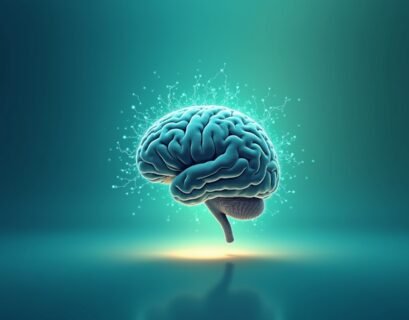In our fast-paced world, feeling overwhelmed by distractions is an all-too-common experience, especially for those with Attention Deficit Hyperactivity Disorder (ADHD). You wake up with every intention of being productive, but as soon as you sit down at your desk, a flurry of thoughts bombards your mind: the laundry that needs folding, the email you forgot to send, and that show you promised yourself to catch up on all intermingling like an overstuffed suitcase. If this scenario sounds familiar, you’re not alone.
Understanding ADHD and its impact on attention and focus can be transformative, not only for those living with the condition but also for their friends, family, and coworkers. The ADHD brain operates differently, and recognizing these differences can lead to empathy and effective strategies for managing daily life. This article explores what science reveals about ADHD, practical tips to enhance focus, relatable anecdotes, challenges faced, and encouraging insights on navigating life with ADHD.
Understanding the Core Issue: The ADHD Brain Explained
The ADHD brain is fascinating and complex. At its core, ADHD is a neurodevelopmental disorder that affects an individual’s ability to focus, sustain attention, and manage impulse control. Scientific research has shown that ADHD results from differences in brain structure and function, particularly in areas responsible for executive function, which includes attention, impulse control, and emotional regulation.
Neurobiology of ADHD
Neurotransmitter imbalances, particularly dopamine and norepinephrine, heavily influence the ADHD brain. Scientific studies reveal that individuals with ADHD often have lower levels of dopamine, which plays a crucial role in motivation and reward. This neurotransmitter deficiency can make it challenging to focus on tasks that don’t offer immediate gratification and leads to struggles with sustained attention over time.
Additionally, brain imaging studies have depicted differences in the size and activity of various brain regions in individuals with ADHD. Areas such as the prefrontal cortex, responsible for decision-making and impulse control, often exhibit reduced activity, leading to difficulties in planning and organization.
Impact on Daily Life
These neurological factors manifest in daily life, impacting everything from academic performance to relationships. Individuals may find it challenging to prioritize tasks, leading to missed deadlines or unfinished projects. Impulsivity can result in blurting out during conversations or acting without considering the consequences, which can strain personal and professional relationships.
Understanding how the ADHD brain processes information is crucial. Recognizing that attention can fluctuate and that external stimuli can easily redirect focus enables a greater understanding of one’s struggles. This knowledge also empowers those with ADHD to develop tailored strategies that suit their unique cognitive profiles.
Practical Tips and Strategies for Enhancing Focus
While ADHD comes with its challenges, there are effective strategies that individuals can implement to improve attention and focus. These practical tips can help transform frustration into productivity and calm.
1. Break Tasks into Manageable Chunks
Many individuals with ADHD feel overwhelmed when faced with larger tasks. Breaking down assignments into smaller, more manageable parts can reduce anxiety and make starting tasks feel less daunting. For example, if you have a report due, break it down into stages: research, outline, write the introduction, and so on. Setting achievable goals can create a sense of accomplishment that fuels motivation.
2. Use Timers and Scheduled Breaks
To combat distractibility, consider using timers as a productivity tool. Techniques like the Pomodoro Technique, where you focus for 25 minutes followed by a 5-minute break, can enhance focus and reduce fatigue. Products like visual timers can help individuals see how much time they have left to complete a task, making it easier to stick to the schedule.
3. Create a Distraction-Free Environment
Environmental clutter can dramatically impact an ADHD brain’s ability to concentrate. Designate a specific workspace that is uncluttered and free from distractions. Consider using noise-canceling headphones or listening to ambient music to drown out distracting sounds. This serene environment can be the difference between focusing effectively and feeling overwhelmed.
4. Implement a Consistent Routine
Establishing a daily routine can provide structure to the day. By following a regular schedule, individuals with ADHD can create a sense of predictability, reducing anxiety and improving focus. Incorporate regular mealtimes, breaks, and a designated end-of-day routine to help signal transitions between tasks.
5. Practice Mindfulness and Relaxation Techniques
Mindfulness practices, such as meditation and deep breathing exercises, can enhance self-regulation and concentration. Consider setting aside a few minutes each day to practice mindfulness. This can help calm the chaotic thoughts that often accompany ADHD and improve focus over time.
Real-Life Examples of Overcoming ADHD Challenges
To illustrate the effectiveness of these strategies, let’s explore a few real-life scenarios that highlight how individuals have successfully navigated their ADHD challenges.
Example 1: Emily’s Academic Journey
Emily, a college student with ADHD, struggled to keep up with her coursework. She often felt overwhelmed by the sheer volume of reading and assignments. After consulting with her academic advisor, she began breaking her tasks down into smaller sections. Emily created a comprehensive planner that outlined her assignments week by week. By treating each lecture as a manageable goal, she found herself becoming more engaged and productive. Gradually, her grades improved, and so did her confidence.
Example 2: Michael’s Workplace Success
Michael, now in his thirties, faced challenges at work due to his impulsivity and distractibility. After years of trial and error, he began using timers to keep himself on track during meetings and while working on projects. He would set a timer for 15-minute blocks, focusing entirely on one task, and then took a break to recharge. This method transformed how he worked and allowed him to contribute meaningfully during team meetings, where he previously struggled to stay present.
Example 3: Sarah’s Parental Experience
As a single mom to a son with ADHD, Sarah often felt overwhelmed and unsure of how to help him navigate his challenges. After attending support groups and gaining insights into effective parenting strategies, she started using visual schedules at home. Together, they created a chart with colorful images representing daily tasks. This visual representation not only guided her son through his routines but also resulted in fewer power struggles and clearer communication.
These anecdotes emphasize the importance of developing personalized strategies for managing ADHD. Each person’s experience is different, and finding what works can be a journey filled with self-discovery and growth.
Overcoming Challenges: Addressing Common Obstacles
While strategies for enhancing focus are invaluable, it’s essential to acknowledge that challenges can arise along the way. Understanding potential obstacles can empower individuals with ADHD to face them head-on.
Time Management Difficulties
One of the most significant challenges for individuals with ADHD is managing time effectively. The struggle with prioritizing tasks can lead to procrastination and missed deadlines. To combat this, implementing visual aids, such as colorful calendars or digital reminders, can create a clear workflow and keep priorities front and center.
Emotional Dysregulation
Many individuals with ADHD experience emotional highs and lows that can affect their focus. Learning techniques to manage emotions, such as writing in a journal, can provide a constructive outlet for feelings. Additionally, seeking support from a therapist can help develop coping mechanisms tailored to one’s needs.
Maintaining Motivation
In the face of boredom or a lack of interest in a task, maintaining motivation can be challenging. One effective approach is to pair mundane tasks with enjoyable activities—such as listening to music or podcasts while cleaning or organizing. By making tasks more enjoyable, individuals can tap into their intrinsic motivation and enhance their focus.
Conclusion: Finding Hope and Effective Strategies for ADHD Focus
Understanding the complexities of the ADHD brain reveals that attention and focus are not just simple challenges, but rather multifaceted experiences influenced by neurobiology. This knowledge, combined with practical strategies, can empower individuals and their loved ones to create a path toward success and fulfillment.
By breaking tasks into manageable chunks, leveraging routines, and fostering supportive environments, those with ADHD can harness their unique cognitive abilities. Relatable anecdotes serve as powerful reminders that it’s possible to navigate life with ADHD while finding joy and productivity along the way.
With each strategy implemented, there comes hope. Individuals with ADHD can unlock their potential and embrace their unique perspectives. Progress may take time, but with patience and perseverance, those struggling with attention and focus can find clarity and purpose in their lives. The journey might be challenging, but it’s also a journey worth undertaking. Embrace your ADHD brain, and let it inspire you to lead a life full of achievements and meaningful connections.














